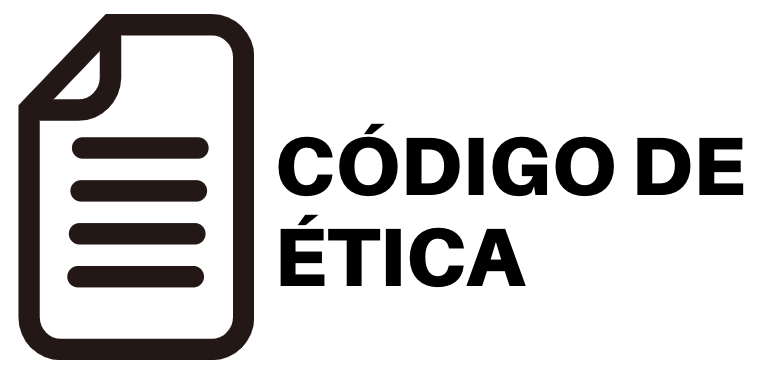Code of ethics
Code of Ethics and Best Editorial Practices
The journal PSIDIAL: Psicología y Diálogo de Saberes is governed by its own code of ethics, based on the international guidelines of the Committee on Publication Ethics (COPE), to ensure transparency, scientific integrity, and best practices in academic publishing.
Ethics Statement and Scope
The Journal PSIDIAL: Psicología y Diálogo de Saberes (e-ISSN: 2806-5972) is a peer-reviewed scientific publication with a biannual frequency (January-June and July-December), which operates under the continuous publication model: articles are published individually once approved, without waiting for the issue to close.
Directed at researchers in Psychology and related sciences, PSIDIAL accepts original contributions from both national and international authors. Its objective is the dissemination of rigorous psychological knowledge that addresses current issues.
Institutional Commitment: The Editorial Board of PSIDIAL is committed to protecting the integrity of the scientific record. We pay special attention to plagiarism detection, data manipulation, and copyright infringement. Our editorial process, based on double-blind peer review and the use of anti-plagiarism software (Compilatio), is designed to provide confidence to readers and authors, ensuring the quality and periodicity of the journal.
1. Journal Objectives
-
Publish high-quality scientific production in psychological sciences at the local, regional, and international levels.
-
Strengthen the social and humanistic value of psychology through well-founded knowledge.
-
Consolidate an active and collaborative scientific community.
-
Encourage multidisciplinary research and reflection on daily, social, and political life.
-
Guarantee Diamond Open Access, complying with international indexing standards.
-
Promote academic ethics and best research practices.
2. Responsibilities of the Editorial Board
The Director, General Editor, and Section Editors are responsible for the management of manuscripts. Their functions include:
-
Management: Review compliance with formal aspects and monitor the adoption of best practices.
-
Evaluation: The Editorial Board evaluates the initial thematic relevance.
-
Decision: The final acceptance or rejection is the responsibility of the Editor, based strictly on the verdict of academic peers and scientific quality, without the influence of external pressures or politics.
-
Transparency: Publish clear instructions on editorial processes, authorship norms, and evaluation criteria.
-
Continuous Improvement: Periodically update the journal's policies and support initiatives to educate authors on publication ethics.
3. Peer Review Process
To ensure scientific quality and validity, PSIDIAL employs a double-blind peer review process.
-
External Experts: Referees external to the publishing institution and the author's institution are used to avoid conflicts of interest.
-
Criteria: Originality, methodological relevance, scientific rigor, currency of the bibliography, and contribution to the field of Psychology are evaluated.
-
Anonymity: It is guaranteed that neither the reviewers know the identity of the authors, nor the authors that of the reviewers.
4. Ethical Principles for Review
Reviewers and editors must adhere to the following principles:
-
Impartiality: The intellectual freedom of authors will be respected. Papers presenting negative results will not be excluded if the methodology is rigorous.
-
Confidentiality: Every manuscript received is a confidential document. Its content must not be discussed with third parties without authorization.
-
Objectivity: The evaluation must be based on academic arguments, avoiding personal criticism.
-
Conflict of Interest: Those who have direct direct labor, academic, or personal relationships with the author must recuse themselves from the evaluation.
-
Fraud Detection: Reviewers must alert regarding suspicions of plagiarism, duplicate publication, or data manipulation.
5. Integrity and Authorship Standards
-
Originality: Authors guarantee that the work is original and has not been previously published.
-
Data Integrity: The fabrication, falsification, or selective manipulation of data constitutes serious scientific fraud.
-
Exclusivity: Authors commit not to submit the manuscript to another journal while it is under evaluation at PSIDIAL.
-
Justified Authorship: All listed authors must have contributed significantly to the research.
6. Plagiarism Detection Policy
PSIDIAL uses the specialized software Compilatio to analyze the similarity of all received manuscripts.
-
If plagiarism (appropriation of ideas or texts without citation) or excessive self-plagiarism is detected, the manuscript will be rejected immediately.
-
Retraction: In case of proven scientific fraud, plagiarism, or serious errors in an already published article, the journal will publish a retraction notice, following COPE protocols, keeping the article accessible but clearly marked as "Retracted".
7. Intellectual Property and Licensing
This section has been updated to comply with Open Science standards:
Copyright: Authors retain the moral and patrimonial rights to their works. They do not transfer copyright to the journal, but rather grant a license for first publication.
Creative Commons License: The journal PSIDIAL publishes all its content under the Creative Commons Attribution-NonCommercial-ShareAlike 4.0 International (CC BY-NC-SA 4.0) license.
Under this license, the following is permitted:
-
Share: Copy and redistribute the material.
-
Adapt: Remix, transform, and build upon the material (derivative works).
Conditions:
-
Attribution (BY): Appropriate credit must be given to the original author and the journal.
-
NonCommercial (NC): The use of the material for commercial purposes is not permitted.
-
ShareAlike (SA): If a derivative work is created (e.g., a translation or adaptation), it must be distributed under the same license as the original.
8. Financial Policy (Diamond Model)
To ensure equity:
-
In no case will authors pay any fee for the review, processing, or publication of their articles (No APCs).
-
All costs are assumed by the Universidad Técnica de Manabí.
9. Data Treatment and Conflict of Interest
Data Protection: The journal guarantees the confidentiality of personal data (names, emails) of registered users, using them exclusively for the editorial purposes of this publication.
Conflict Resolution:
-
If conflicts of interest arise between editors and authors, the involved editors will recuse themselves from the process.
-
Reviewers are urged to declare any conflict (personal relationship, direct academic competition, recent collaboration) before accepting the assignment.
-
In complex ethical cases or dilemmas regarding research with human subjects, the editorial team will turn to the Bioethics Committee of the Universidad Técnica de Manabí for its verdict and advice.




















